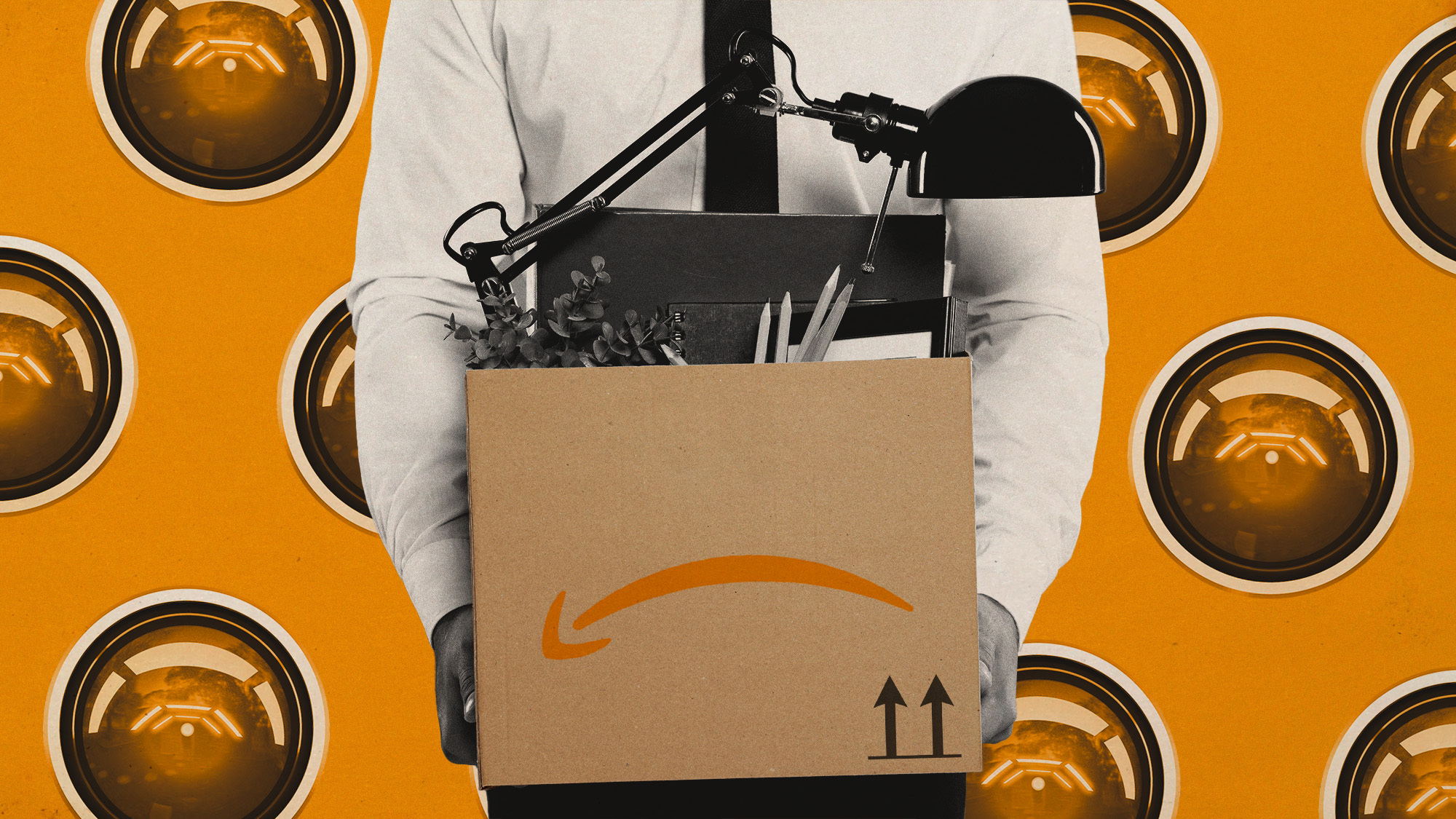'Mind-boggling': how big a breakthrough is Google's latest quantum computing success?
Questions remain over when and how quantum computing can have real-world applications

A free daily email with the biggest news stories of the day – and the best features from TheWeek.com
You are now subscribed
Your newsletter sign-up was successful
Google has unveiled a powerful new quantum computer chip that it says takes five minutes to solve a problem that would currently take the world's fastest supercomputers 10 septillion years to complete – more time than the universe has existed.
Willow is the latest development in quantum computing, a field that is "attempting to use the principles of particle physics to create a new type of mind-bogglingly powerful computer", said the BBC. Google says the chip represents a major breakthrough and could soon pave the way to "a useful, large-scale quantum computer".
Quantum computing is still an experimental field. But Google's achievement shows that scientists are refining techniques and technologies that could one day allow the discipline to "live up to the enormous expectations that have surrounded this big idea for decades", said The New York Times.
The Week
Escape your echo chamber. Get the facts behind the news, plus analysis from multiple perspectives.

Sign up for The Week's Free Newsletters
From our morning news briefing to a weekly Good News Newsletter, get the best of The Week delivered directly to your inbox.
From our morning news briefing to a weekly Good News Newsletter, get the best of The Week delivered directly to your inbox.
What did the commentators say?
Since Google unveiled Willow, there has been some "breathless reporting about it", but what the chip represents "is not so simple", said Engadget.
Google used a benchmark test called random circuit sampling (RCS) to prove that Willow could perform these calculations much faster than a classical computer. But RCS, designed only to test quantum computing, has, in the words of Google itself, "no known real-world applications".
But the Google team have "another reason to believe in Willow's bright future", said New Scientist. "The propensity of quantum computers to make errors is one of the biggest issues currently preventing them from delivering on the promise of being more powerful than any other type of computer." But Google's study, published in Nature, showed that for the first time, errors can be suppressed exponentially as a quantum computer increases in size – a breakthrough that has been pursued in the field for more than 30 years.
Surpassing this "error correction threshold" means that quantum computers "are on a path to a moment, still well into the future, when they can overcome their mistakes and perform calculations" that could significantly accelerate scientific progress, as well as perform tasks that businesses and consumers find useful, said The New York Times.
A free daily email with the biggest news stories of the day – and the best features from TheWeek.com
"What we really want these machines to do is run applications that people really care about," said John Preskill, a theoretical physicist at the California Institute of Technology. "Though it still might be decades away, we will eventually see the impact of quantum computing on our everyday lives."
What next?
Microsoft, Amazon and IBM are all working on quantum computing systems of their own.
Scientists believe that this technology will one day be able to "make major breakthroughs in materials sciences and biology by conducting massive calculations at the molecular and atomic level that would be impractical for classical computers to tackle", said Semafor.
Google's next challenge will be to "perform a first 'useful, beyond-classical' computation that is both 'relevant to a real-world application' and one that typical computers can't achieve", said The Verge.
Sorcha Bradley is a writer at The Week and a regular on “The Week Unwrapped” podcast. She worked at The Week magazine for a year and a half before taking up her current role with the digital team, where she mostly covers UK current affairs and politics. Before joining The Week, Sorcha worked at slow-news start-up Tortoise Media. She has also written for Sky News, The Sunday Times, the London Evening Standard and Grazia magazine, among other publications. She has a master’s in newspaper journalism from City, University of London, where she specialised in political journalism.
-
 Tourangelle-style pork with prunes recipe
Tourangelle-style pork with prunes recipeThe Week Recommends This traditional, rustic dish is a French classic
-
 The Epstein files: glimpses of a deeply disturbing world
The Epstein files: glimpses of a deeply disturbing worldIn the Spotlight Trove of released documents paint a picture of depravity and privilege in which men hold the cards, and women are powerless or peripheral
-
 Jeff Bezos: cutting the legs off The Washington Post
Jeff Bezos: cutting the legs off The Washington PostIn the Spotlight A stalwart of American journalism is a shadow of itself after swingeing cuts by its billionaire owner
-
 Are Big Tech firms the new tobacco companies?
Are Big Tech firms the new tobacco companies?Today’s Big Question A trial will determine whether Meta and YouTube designed addictive products
-
 Will AI kill the smartphone?
Will AI kill the smartphone?In The Spotlight OpenAI and Meta want to unseat the ‘Lennon and McCartney’ of the gadget era
-
 Has Google burst the Nvidia bubble?
Has Google burst the Nvidia bubble?Today’s Big Question The world’s most valuable company faces a challenge from Google, as companies eye up ‘more specialised’ and ‘less power-hungry’ alternatives
-
 Is Apple’s Tim Cook about to retire?
Is Apple’s Tim Cook about to retire?Today's Big Question A departure could come early next year
-
 Is AI to blame for recent job cuts?
Is AI to blame for recent job cuts?Today’s Big Question Numerous companies have called out AI for being the reason for the culling
-
 How the online world relies on AWS cloud servers
How the online world relies on AWS cloud serversThe Explainer Chaos caused by Monday’s online outage shows that ‘when AWS sneezes, half the internet catches the flu’
-
 Is the UK government getting too close to Big Tech?
Is the UK government getting too close to Big Tech?Today’s Big Question US-UK tech pact, supported by Nvidia and OpenAI, is part of Silicon Valley drive to ‘lock in’ American AI with US allies
-
 Google: A monopoly past its prime?
Google: A monopoly past its prime?Feature Google’s antitrust case ends with a slap on the wrist as courts struggle to keep up with the tech industry’s rapid changes